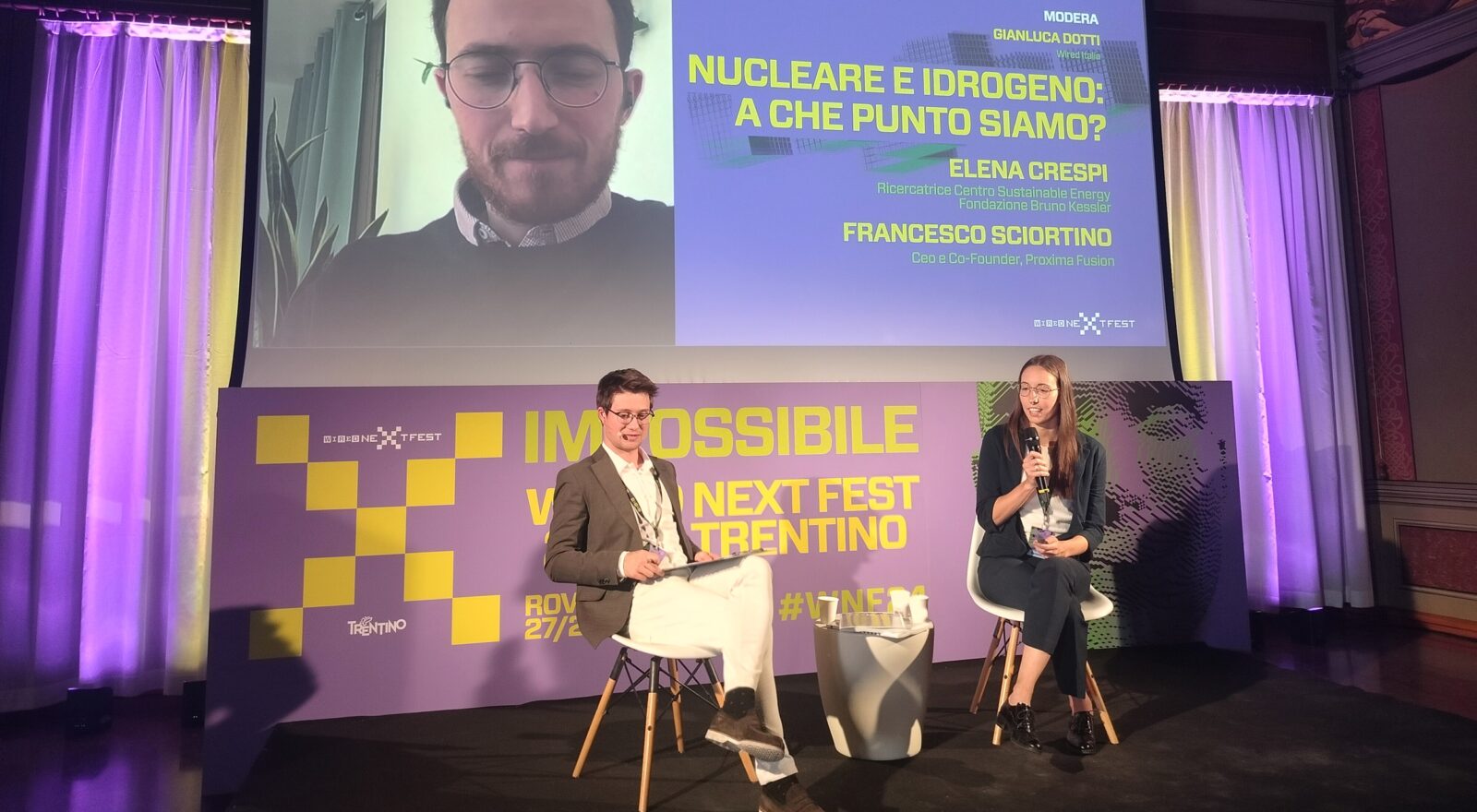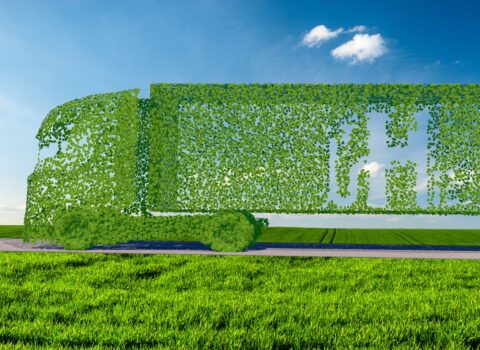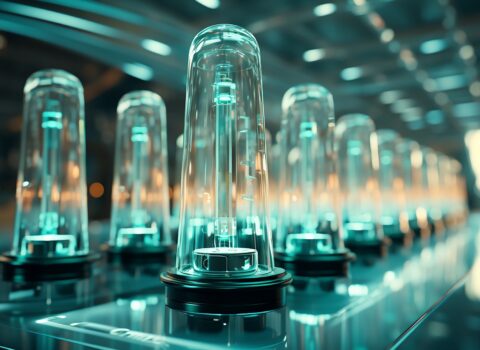
Renewable hydrogen
FBK researcher Elena Crespi's talk at the Wired Next Fest in Rovereto
“The role of renewable hydrogen in the energy transition has been recognized at the European level, with the publication of the European hydrogen strategy, and also at the Italian level, where the guidelines for the national hydrogen strategy have been published and where with the PNRR more than 3 billion euros have been allocated to the development of projects in this industry.”
Thus Elena Crespi, researcher with the Center for Sustainable Energy at Fondazione Bruno Kessler, in her talk this afternoon at the Wired Next Fest in Rovereto.”.
“When we talk about hydrogen,” the FBK researcher explained, ”we need to differentiate hydrogen produced from fossil fuels with the emission of carbon dioxide, from renewable hydrogen produced without polluting emissions. Renewable hydrogen can be used for storage of clean electricity and converted back to electricity when demand is higher. In this way, hydrogen can enable greater penetration of renewables into the power grid. In addition, hydrogen can be used for the decarbonization of sectors defined as Hard to abate, which are those sectors where electrification is not viable, as in the case of steel industries, cement plants, and chemical industries. Finally, it can contribute to the decarbonization of the transport sector, where it can be used as a fuel for both road and rail and water transport.”
During the discussion at the Palazzo del Bene with Francesco Sciortino, ceo and co-founder of the startup Proxima Fusion who joined virtually, and moderated by journalist Gialuca Dotti, Elena Crespi also spoke about the scientific and technological frontiers being worked on and her research activities at Fondazione Bruno Kessler: “From a research point of view, we are active on the whole hydrogen value chain. On the one hand we focus on optimizing electrolyzers. For example, research is focused on the use of new materials that are cheaper and better performing, but also on better integration with renewables and better management of these systems. At the same time, we are engaged in new hydrogen storage systems that can complement the more traditional 200-bar pressurized hydrogen storage and also facilitate its transport. Finally, research is also looking at fuel cells, that is, systems for converting hydrogen back into electricity, which can be used both for stationary purposes and in the transportation sector. At FBK, in the Center for Sustainable Energy, we follow several EU-funded projects and research projects to support industries. I am mainly working on electrolysis. I am following experimental activities where we test different electrolysis cells, to select the components with the highest performance. Among the European projects, I have been following the SWITCH project, which aims to optimize the operation of a particular reversible system that can produce hydrogen both from water and from biogas, at a lower cost.”




